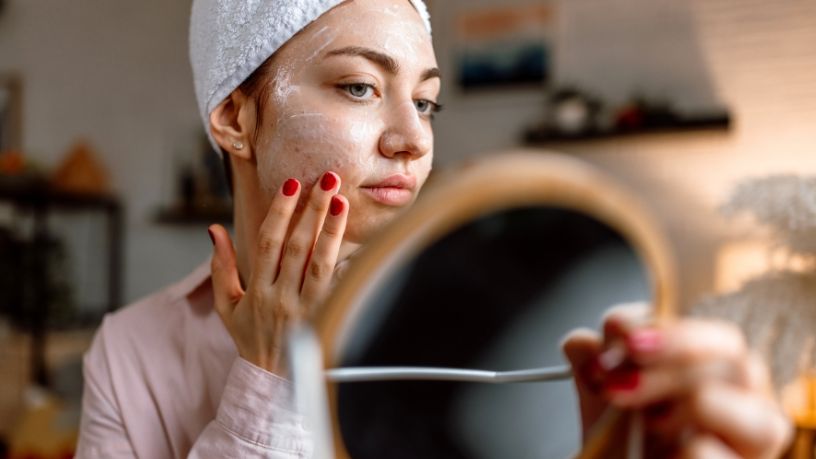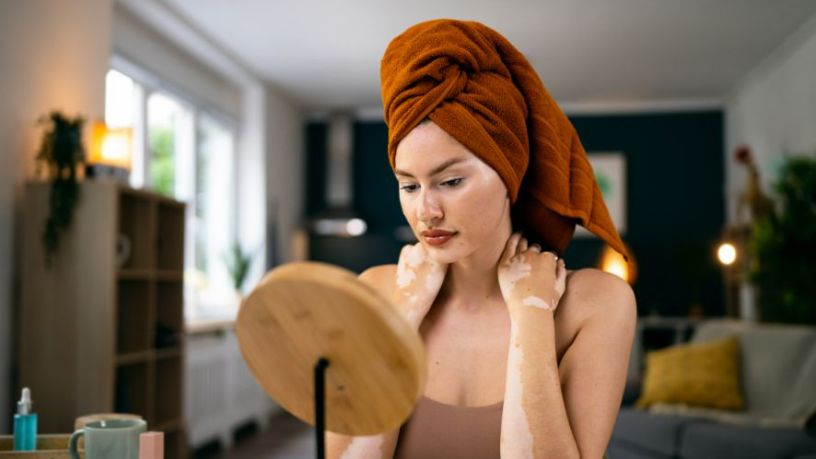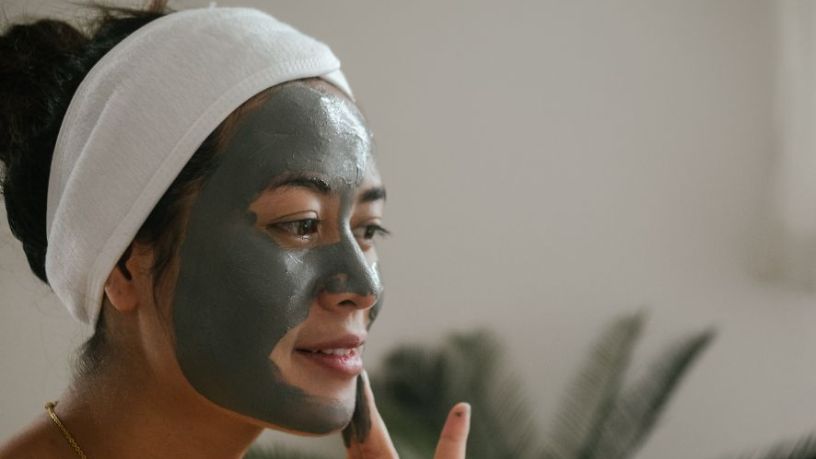Every person’s skin is different, so it’s important to find products and a routine that work for you and your needs.
Key takeaways
You don’t need to spend a lot of money on hundreds of products to get great results.
If your skin reacts to a product or it’s painful, stop using it straight away.
From retinols and acids to vitamins and treatments, skincare can be overwhelming and confusing.
With so many products and claims, it’s hard to know where to start and when to stop.
We debunk 7 common skincare myths to help you achieve your skin goals.
Myth 1: Stronger products lead to faster, better results
You’ve probably seen 'super strength' retinol serums or 'extreme' acid peels which are marketed as better or faster acting.
But the truth is, you don’t need to buy the highest percentage of an active ingredient to fix your skincare concern. There’s also no need to try to up the ante if a product is working well.
For many people, using higher strength products can exacerbate skin.
If you have sensitive skin or a condition like rosacea, you need to tread with caution.
The best way to decipher whether a product is right for your skin is to see a dermal therapist, but you can also monitor your own skin at home.
Listen to your skin. If you move to a higher strength product and you start to get irritated, pull back.
Myth 2: Natural skincare is better for sensitive skin
There’s nothing wrong with using natural ingredients if that’s what you prefer. But natural doesn’t automatically mean safer or better.
There’s no evidence to support the claim that natural skincare is better for sensitive skin. There is a lot of confusing marketing, though.
Not only is the term “natural” not regulated, but it doesn’t really mean a lot either. Natural skincare products often contain essential oils which can be quite irritating to the skin and have a shorter shelf-life which means your products can expire more quickly.
Check your ingredients and be wary of those you don’t recognise.
Myth 3: Foaming cleansers are bad for your skin
You can thank many old-school foaming cleansers for this outdated myth. You may have tried these harsh and stripping products as a teenager, but generally foaming cleansers aren't 'bad' for your skin. Will they suit everyone? No, but that's okay because we all have different skin types with different needs.
A lot of your favourite, trusted brands make cleansers that deliver that foaming sensation with good cleansing ability, without irritation. Plus, many are formulated with soothing and hydrating ingredients.
Myth 4: You won't get acne over the age of 30
Whoever said you’ll grow out of your pimples obviously hadn’t heard about adult acne1 or pregnancy acne2.
The truth is, acne can happen at any time. Age does not make us immune to breakouts.
Even women in their 50s can get acne when menopause causes fluctuating hormonal levels, sometimes leading to major skin changes. And we can’t forget all the other contributing factors like stress, food, lifestyle and using the wrong skincare.
If you get a breakout, treat it as you normally would or see a dermal therapist for advice.
Myth 5: Wearing make-up causes acne
Staying on the topic of acne, you might've heard wearing make-up or choosing thicker, full coverage foundations causes skin to breakout. In actuality, there’s no research to support claims that make-up can lead to acne.
What might encourage breakouts is not removing your make-up properly and cleansing your skin at the end of the day.
It’s good to remember that every skin type is different, and some make-up ingredients could irritate your skin and cause breakouts. If this happens, simply stop using products with that ingredient.
If you find your skin is especially reactive to make-up, wearing mineral or no make-up can be a good option.
Myth 6: You need a lot of expensive products
You don’t need to drop a bomb on hundreds of products and clinical treatments to see results.
There are 3 products you really need: a cleanser, a moisturiser and an SPF
Everything else is a bonus. If you’re looking to build your routine on a budget, there are lots of affordable brands out there. Plus, more expensive brands cycle through sales periods in chemists and supermarkets, so look out for deals.
Myth 7: If it burns, it's working
Last but not least, let's address the whole 'burning your face off' trend that feeds into the ‘beauty is pain’ narrative.
A product doesn’t need to burn or hurt you to mean it’s working. In fact, a good lesson to take through life and skincare is: if it hurts, stop doing it.
Some exfoliants and resurfacing treatments may feel a tiny bit tingly on the skin, but this should subside and should not be painful.
If products feel uncomfortable, that's your skin trying to tell you the product isn't right for you.

At Bupa, trust is everything
Our health and wellbeing information is regularly reviewed and maintained by a team of healthcare experts, to ensure its relevancy and accuracy. Everyone's health journey is unique and health outcomes vary from person to person.
This content is not a replacement for personalised and specific medical, healthcare, or other professional advice. If you have concerns about your health, see your doctor or other health professional.
1Liu, K., & Nassim, J. (2019). Adult acne: Understanding underlying causes and banishing breakouts. Harvard Health Publishing.
2Gibson, L. E. (2022). What’s the best way to treat pregnancy acne?. Mayo Clinic.
You might also like...
What is skin cycling?
If you’ve been scrolling through your socials lately, you might have noticed a new skincare routine making the rounds. But what exactly is skin cycling?
Natural vs organic skincare: What’s the difference?
What’s the difference between ‘natural’ and ‘organic’ skincare, and are these products really better for your face and the planet?
6 winter skin solutions
Does your skin change every time the weather gets colder? We’ve put together 6 tips to help you nurture your skin this winter.
Have you been greenwashed?
Natural and sustainable products are gaining popularity. But how can we know if a brand is the real eco deal or just green washing?





